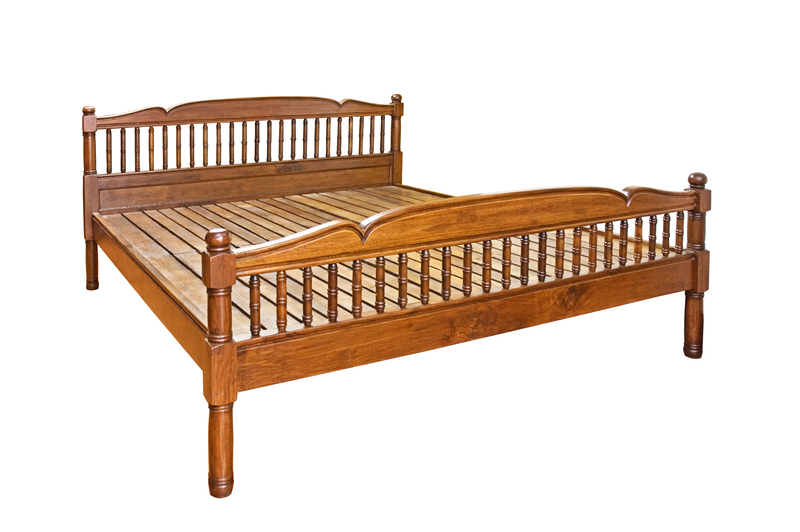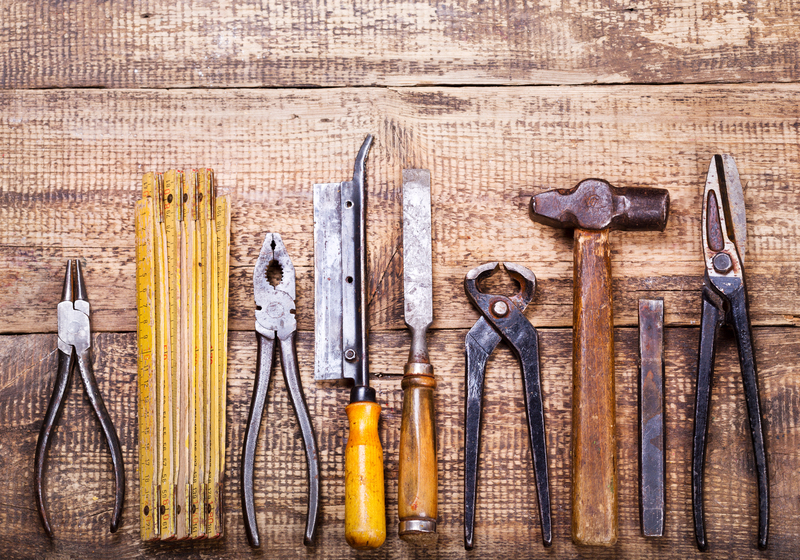Tips for Keeping Bulky Waste Disposal Low-Cost
Bulky waste disposal can be a real challenge for homeowners, business owners, and even renters. Whether you're doing a house clear-out, upgrading your office furniture, or just decluttering, the costs to get rid of large items like sofas, mattresses, appliances, or construction debris can add up quickly. However, with a strategic approach and some practical bulky waste disposal tips, you can keep your expenses surprisingly low. This comprehensive guide will show you how to dispose of bulky waste inexpensively while being responsible and eco-friendly.
Understanding Bulky Waste and Its Disposal Challenges
Before we dig into the best cost-saving tips for bulky waste disposal, let's clarify what is considered "bulky waste". Bulky items are generally too large, heavy, or awkward to be collected by standard municipal waste collection services. These typically include:
- Old furniture (couches, beds, wardrobes, etc.)
- Large household appliances (refrigerators, washing machines, ovens, etc.)
- Garden waste (branches, tree stumps, sheds)
- Construction debris and DIY rubble
- Carpets and mattresses
Because of their size and weight, these items require special handling and often entail additional costs. Fees can include collection charges, recycling surcharges, or dump fees. Now, let's explore the most effective strategies for keeping bulky item removal expenses low.

Plan Ahead: Advance Preparation Saves Money
One of the most important steps in minimizing costs associated with bulky waste removal is to plan ahead. Scrambling for last-minute solutions often leads to higher prices. Here's what you can do:
- Sort bulky items: Group similar waste together (e.g., all furniture, all electronics). This makes disposal easier and can reduce labor costs.
- Measure and inventory: Know exactly what you need to dispose of. This info helps when comparing quotes or booking council pickups.
- Check collection dates: Many municipalities offer free or discounted bulky waste pickups several times a year. Mark your calendar to avoid missing out.
Reduce, Reuse, and Recycle First
The most affordable way to handle bulky waste disposal is to generate less of it! Try to reuse or repurpose items wherever possible. Consider these methods:
- Donation: Charities, shelters, community groups, or thrift stores may accept gently-used furniture or appliances. Some organizations even offer free collection.
- Sell or give away: Use online marketplaces (e.g., Craigslist, Facebook Marketplace, Freecycle) to sell or give away items. You may not only save disposal fees, but even make some extra cash!
- Repair or Upcycle: Can that table be fixed or transformed? Repurposing can save you money and reduce landfill waste.
Leverage Local Council Bulky Waste Collection Services
Many local authorities offer scheduled bulky waste pickups. These services are often more affordable than hiring private contractors. Here's how to take advantage:
- Check eligibility and limits: Each council has their own rules--find out what kinds of items they accept, how many collections you're allowed, and any restrictions.
- Book collections in advance: High-demand periods can book up fast. Schedule as early as possible to avoid rush fees.
- Consolidate items: Many councils charge per collection, not per item. Maximize the value by disposing of as many items as allowed in one go.
Tip: Combine with Neighbors for Savings
If you and your neighbors have bulky waste disposal needs, consider sharing a collection slot or private skip. Splitting the costs helps everyone save!
Explore Private Junk Removal Companies Wisely
While private waste removal services can be pricey, they may be the best option if you need flexibility or immediate pickup. To keep costs down:
- Compare multiple quotes: Get estimates from several local companies. Be sure to specify volume, type, and accessibility to get accurate pricing.
- Ask about load size: Companies often charge by how much space your items take up in the truck. Break down furniture to minimize volume.
- Be ready on collection day: Having everything prepared at curbside saves labor time and may reduce charges.
- Avoid hidden fees: Read the contract for fuel surcharges, after-hours pick up fees, or surcharges for certain materials.
Consider Skip Bin Hire for Large or Ongoing Projects
Renting a skip bin can be cost-effective for big, bulky jobs, such as renovations or large garden clear-outs. To keep skip hire costs low:
- Choose the right size: A too-large skip wastes money, but overfilling can mean fines. Get an accurate estimate of your waste volume.
- Share with friends or neighbors: Just like with council pickups, jointly hiring a skip can cut individual expenses.
- Separate recyclables: Some companies offer lower rates for skips filled with only one type of waste, like metal or green waste.
- Ask about council permits: If the skip is kept on the street, check if a permit is needed. Some companies handle this for free; others charge a fee.
Take Advantage of Recycling Centers and Drop-Off Programs
Many cities and towns operate recycling centers or household waste recycling facilities (HWRCs) where residents can dispose of bulky waste at little or no cost. Tips for saving money include:
- Check what's accepted: Some centers take large appliances, scrap metal, mattresses, or green waste for free or for a minimal fee.
- Sort before you go: Properly sorted items are faster and sometimes cheaper to unload.
- Ask about resident discounts: Proof of residency might entitle you to reduced fees.
- Bring the right vehicle: Ensure your car or trailer can fit your items in one trip to avoid repeat travel (and fuel costs).
Household Hazardous Waste Days
If your bulky waste includes items like paint, pesticides, or chemicals, check for local hazardous waste collection events. These may allow free or discounted drop-off of otherwise expensive-to-dispose items.
DIY Bulky Waste Disposal: Is It Worth It?
If you have a vehicle and some muscle, self-hauling bulky waste to the local recycling center or landfill may be your cheapest option. Remember to factor in:
- Fuel and time costs (calculate round-trip distance)
- Landfill or tipping fees (call ahead for rates)
- Manual labor (enlist help if items are heavy)
- Health and safety (use gloves, secure loads, and take care with awkward or sharp objects)
For smaller amounts of bulky waste, this approach can be highly cost-effective. But for larger loads or when time is short, it may be worth exploring professional options.
Specialty Items: Mattresses, Fridges, and Electronics
Some bulky items require special handling due to recycling regulations or hazardous components.
- Mattresses and Box Springs: Many communities have mattress recycling programs. Look for curbside collection days or drop-off locations to avoid landfill fees.
- White Goods (Fridges, Freezers, etc.): Special disposal is required to safely remove refrigerants. Ask your local council or recycling center about white goods recycling programs.
- Electronics (TVs, Computers): E-waste is often banned from regular trash. Take advantage of e-waste recycling events or retailer trade-in schemes that might even offer a discount on new purchases.
Pro Tips for Low-Cost Bulky Waste Disposal
- Group items together: Whether for council, private, or DIY disposal, handling larger volumes at once usually lowers costs per item.
- Break down bulky items: Disassembling furniture or equipment makes it easier and cheaper to transport or pile into bins.
- Limit hazardous or restricted waste: Segregate and dispose of hazardous items separately to avoid contaminating loads (which can lead to penalties or higher fees).
- Ask your local council about free disposal programs--many people miss out simply because they're unaware of local initiatives.
- Don't fly-tip: Illegal dumping can result in steep fines that far outweigh any savings on proper disposal.

Frequently Asked Questions (FAQ)
Can I leave bulky waste on the street for someone to take?
In many areas, this is prohibited and could result in fines. However, designated "large item collection days" may allow it--always check local regulations.
What if I can't afford any disposal service?
Contact your local council or social services. Many areas offer hardship programs or free community clean-ups for those in need.
Are appliances picked up for free when replaced?
Some retailers offer free removal when delivering new items--always ask when you purchase.
Conclusion: Save Money When You Dispose of Bulky Waste
Affordable bulky waste disposal is achievable with a bit of planning and research. Utilize community programs, recycling centers, and shared services whenever possible. Don't forget, the greenest and most cost-effective choice is always to reduce, reuse, and recycle bulky items before considering disposal. With these tips, you'll keep your costs low and your conscience clear.
Ready to handle your next bulky waste project? Share these tips with your friends and neighbors to save together!
```





